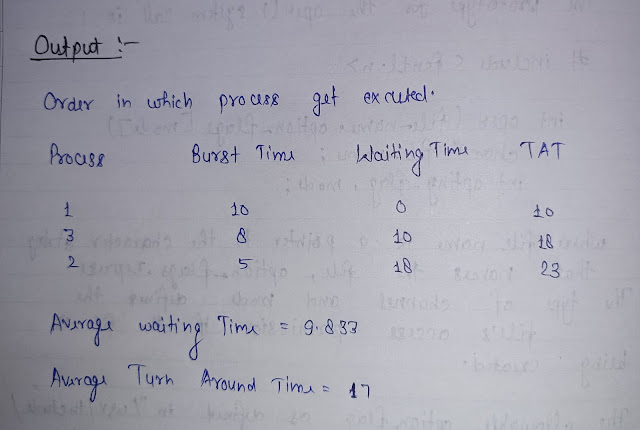3. Shortest job first
#include <iostream>
using namespace std;
int main() {
int A[100][4];
int i, j, n, total = 0, index, temp;
float avg_wt, avg_tat;
cout << "Enter number of processes: ";
cin >> n;
cout << "Enter Burst Time:" << endl;
for (i = 0; i < n; i++) {
cout << "P" << i + 1 << ": ";
cin >> A[i][1];
A[i][0] = i + 1;
}
for (i = 0; i < n; i++) {
index = i;
for (j = i + 1; j < n; j++)
if (A[j][1] < A[index][1])
index = j;
temp = A[i][1];
A[i][1] = A[index][1];
A[index][1] = temp;
temp = A[i][0];
A[i][0] = A[index][0];
A[index][0] = temp;
}
A[0][2] = 0;
for (i = 1; i < n; i++) {
A[i][2] = 0;
for (j = 0; j < i; j++)
A[i][2] += A[j][1];
total += A[i][2];
}
avg_wt = (float)total / n;
total = 0;
cout << "P\tBT\tWT\tTAT" << endl;
for (i = 0; i < n; i++) {
A[i][3] = A[i][1] + A[i][2];
total += A[i][3];
cout << "P" << A[i][0] << "\t" << A[i][1] << "\t" << A[i][2] << "\t" << A[i][3] << endl;
}
avg_tat = (float)total / n;
cout << "Average Waiting Time= " << avg_wt << endl;
cout << "Average Turnaround Time= " << avg_tat << endl;
}
